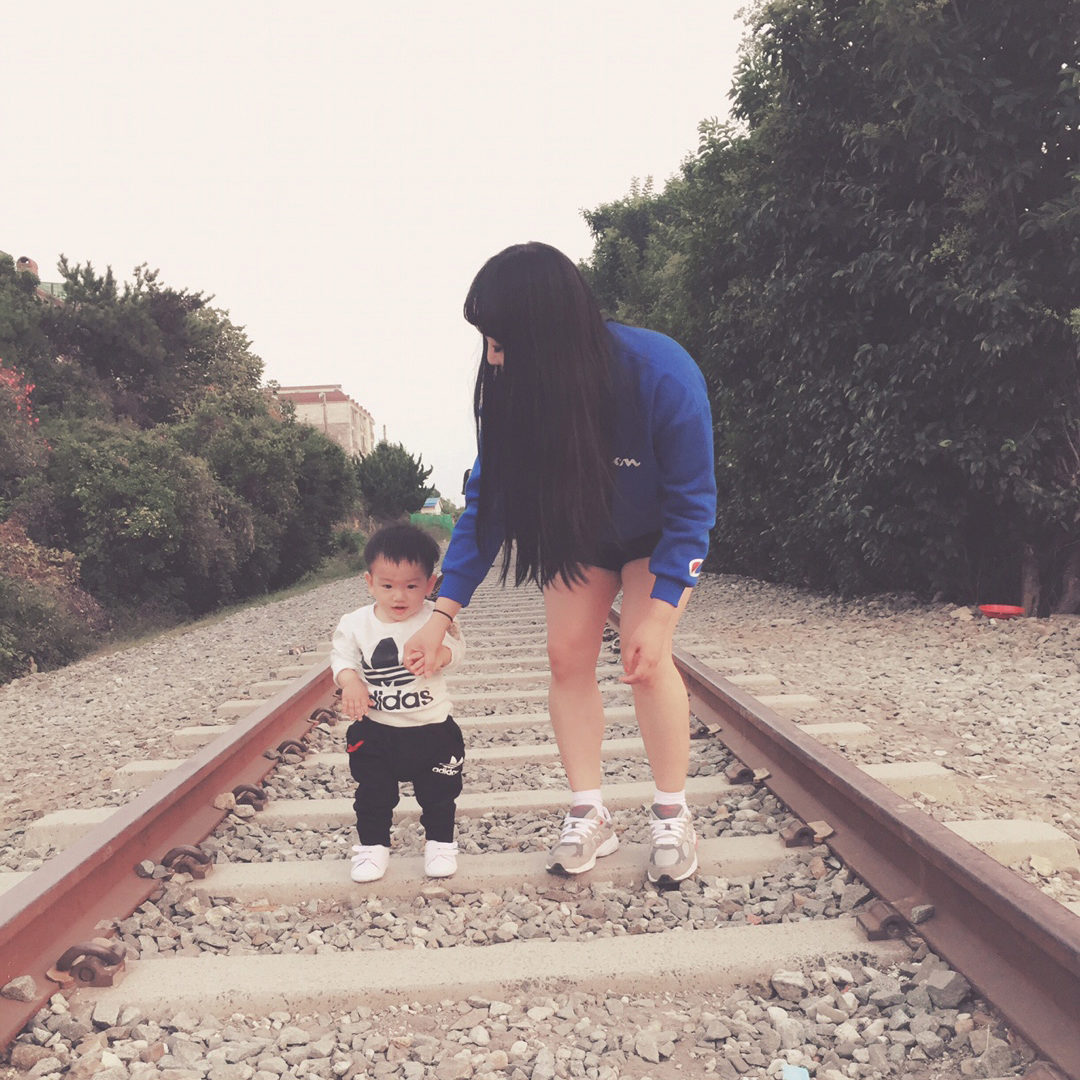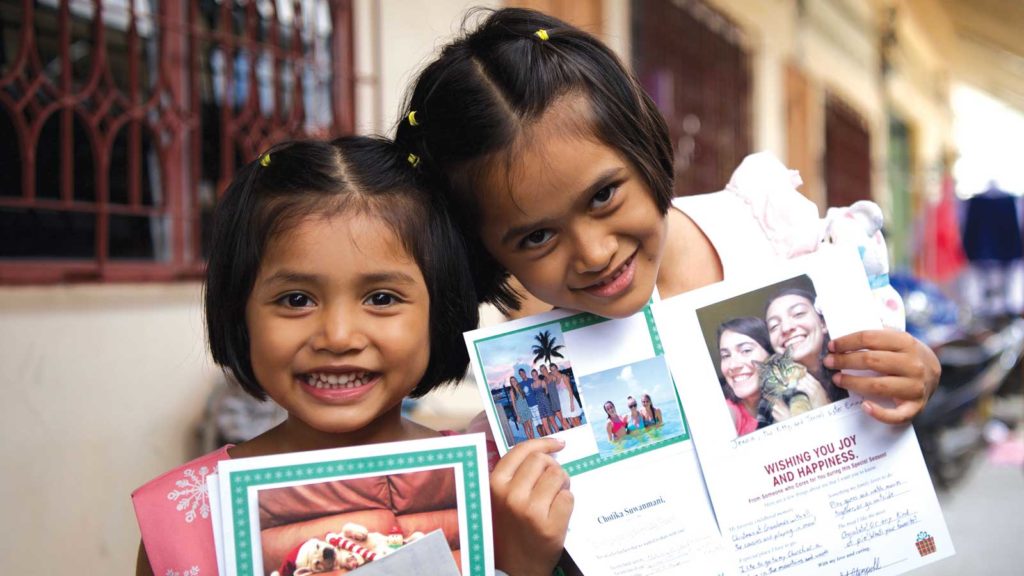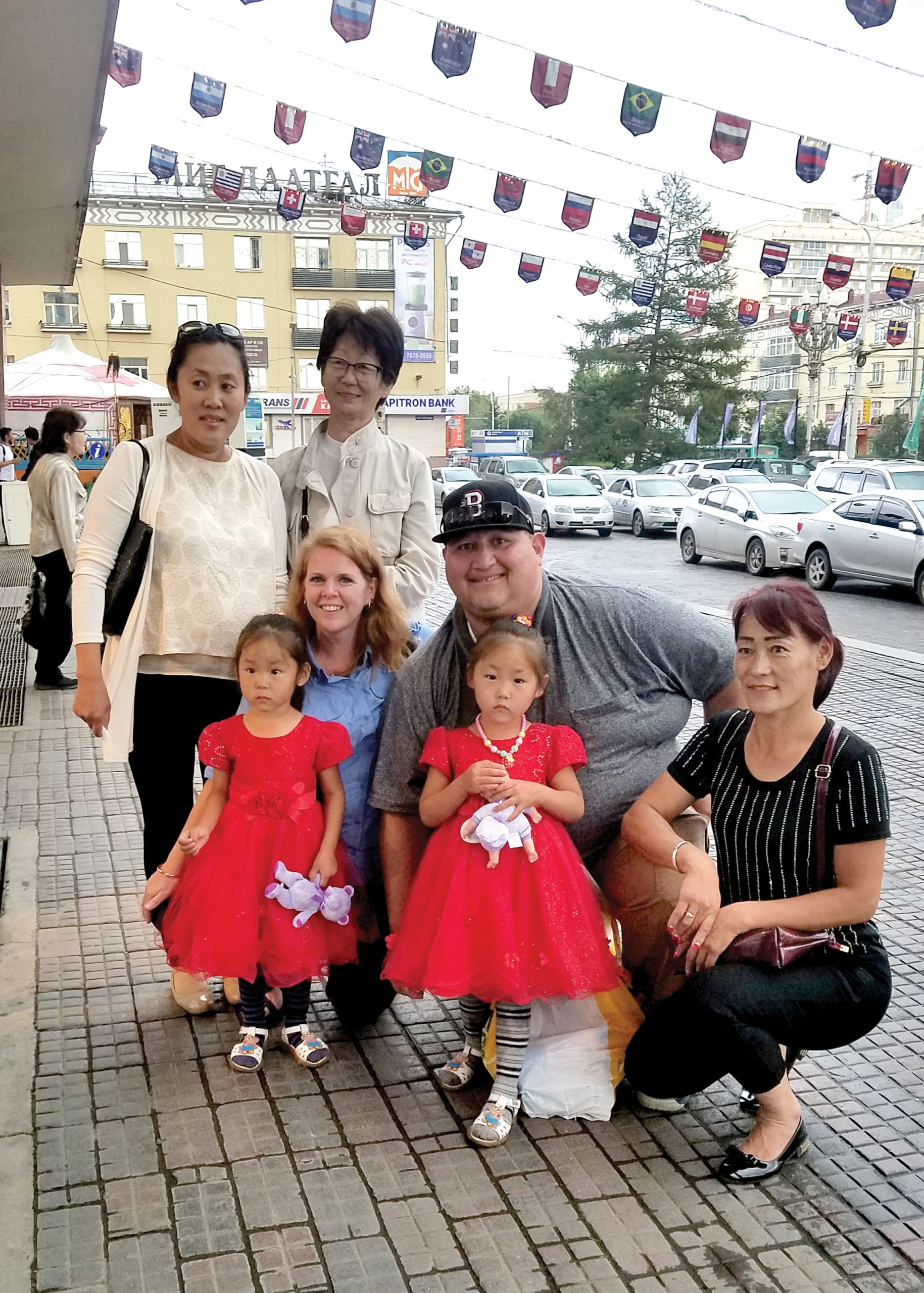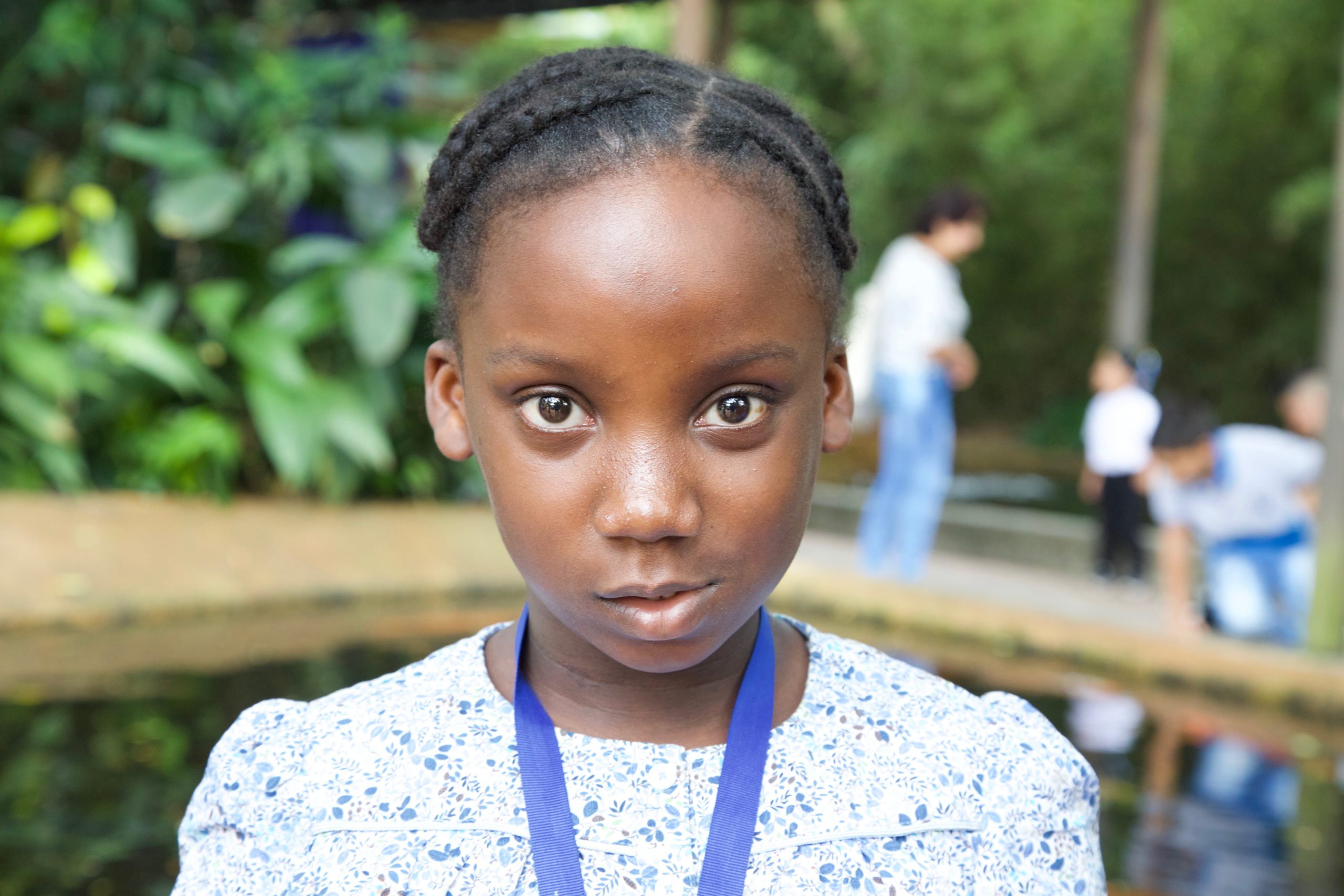Amid an orphan care crisis in South Korea, Holt sponsors and donors help care for children in greatest need — and support a long-term solution.

In South Korea, a 1-year-old sits in a crib. Surrounded by other children, in identical cribs, she lifts up her arms as her caregiver walks past. Her caregiver lovingly picks her up, then places her on the floor to play with the toys that she shares with everyone else. She cries, desperate for one more moment of attention.
She’s healthy, developing well, “a lovely child,” as her caregivers describe her. But she will most likely never have a loving, permanent family of her own.
Because she was abandoned.
Abandonment is a harsh, unfeeling word. And it is an even harsher, more unfeeling reality for thousands of children around the world. But in countries with high rates of abandonment, the reason parents leave their children on the steps of an orphanage is anything but unfeeling. In developing countries, the desperation of poverty most often compels parents to make this heartbreaking decision. In more developed countries, however, the reason is a bit more complex — and just as heartbreaking.
South Korea’s Orphan Care Crisis
In the nearly 70 years since the Korean War ended, South Korea has developed into a socially and economically thriving nation. However, rates of child abandonment in Korea remain high. In fact, they’ve risen in the past seven years.
There is an orphan care crisis in South Korea. But the root cause isn’t poverty. It’s stigma.
Traditional Korean culture places tremendous importance on preserving bloodlines. Having a child out of wedlock breaks this bloodline — heaping shame on the family, and tremendous stigma and discrimination on both single mothers and their children.
A single mother may not be hired for a job. She may never get married. She could be shunned by her community and family. She and her child will have to fight harder for the equal opportunities they deserve. Because of this, many single mothers in Korea feel like they have no choice but to abandon or relinquish their child.
There is an orphan care crisis in South Korea. But the root cause isn’t poverty. It’s stigma.
Up until 2012, a woman in Korea could legally relinquish her child for adoption and still remain anonymous — protecting her from the stigma associated with single motherhood. Most of these children went on to join families through either domestic or international adoption. But in 2012, a law passed in Korea that required birth mothers to legally document the child they placed for adoption in their family’s official registry — documentation in Korea that comes into play for nearly all aspects of life, such as college admissions, employment and marriage.
Although designed to provide more legal protections for the birth mom, and to make a way for the child to someday learn more about his or her birth family, the law had an unintended — and terrible — outcome. The rate of abandonment went up dramatically.
“There’s a clear correlation [between this new requirement and abandonment rates] because we saw a spike in the number of abandonments after the law was enacted,” explains Paul Kim, Holt’s director of Korea and Mongolia programs. “For the mothers, including a child born out of wedlock on their family registry is like a scarlet letter on their record.”
In fear of discrimination, many mothers now feel they have no other option but to leave their child somewhere like an orphanage, hospital or public place where they know they’ll be taken care of. But by evading the formal relinquishment process, they may not realize that it is very unlikely their child will ever be adopted. Now, if a child does not have formal relinquishment documents, it is very difficult for them to be adopted within Korea — and impossible for them to be adopted internationally.
“In essence, what this law does is increase the number of children placed in orphanages who have no chance of having a permanent, loving family,” says Paul.
Advocacy
Holt, and Holt supporters, are now fighting this outcome for children. Just last December, South Korea considered amending this law. While not enacted, the amendment remains a discussion in South Korea’s government. And until it is changed, Holt will continue to advocate on behalf of children.
But like the problem itself, the solution to Korea’s orphan care crisis is complex. The first step is getting to the root of the issue — preventing child abandonment.
Support for Single Moms
Holt sponsors and donors help solve Korea’s orphan care crisis by helping single mothers who make the brave choice to parent, rather than relinquish or abandon their child.
Across South Korea, Holt sponsors and donors support six mother and child homes — safe places where women can stay after the birth of their child. At these shelters, single moms like Nari* can pursue education, and gain the tools they need to independently parent their child.
Single, pregnant and without any support, Nari felt ashamed and lost.
“I did not inform my parents,” Nari says about her pregnancy. “I could not bear the guilt and my mind was overflowing with anxiety.”
But once her baby was born, she found refuge at the Holt Morning Garden single mother and child shelter. Here, she received counseling to help her sort through her complex situation — to decide whether to face the likelihood of discrimination and parent her child, or place him for adoption.
“But as I cared for my child, the love and care of the staff and other families helped carry me through.”
Nari, single mother
“For three months, I was drowning in my thoughts,” Nari says. “But as I cared for my child, the love and care of the staff and other families helped carry me through. I was able to regain my confidence.”
Nari learned that if she worked hard, anything was possible. So she decided to continue her studies and to parent her child. She earned her high school diploma, and also trained to become a barista. She studied for the college entrance exam — and got in! Today, Nari is in college, pursuing her dream of becoming a social worker. And her child, a son she named Ji-ho, is thriving in her loving care.
Orphan Care
With the support of sponsors and donors, more and more moms in Korea are choosing to parent. But staying with their birth family is not an option for every child. And today, fewer of these children have the chance to join an adoptive family.
“The reality is there are children out there who, because the ways the laws are written, because of the way society is, are not able to realize their potential,” Paul says. “And they are as deserving as any other child for a chance.”
For children already living in an orphanage who cannot be adopted domestically or internationally, Holt sponsors and donors help give them the very best chance.
A pillar of the work Holt sponsors and donors do around the world, orphan care goes beyond caring for a child’s most basic needs. It includes special therapies and resources for children with special needs, meal plans and feeding trainings from Holt’s nutrition program, and advocacy to create a low child-to-caregiver ratio in care centers. And as more children continue to be placed in orphanages in Korea, the need will only grow for sponsors and donors to provide nurturing care for these children — from infancy through their teenage years.
For a teenager, the transition out of the orphanage at 18 years old can be devastating.
For children already living in an orphanage who cannot be adopted domestically or internationally, Holt sponsors and donors help give them the very best chance.
“As they age out [of orphanage care],” Paul says, “their chances to have a successful life greatly diminish in comparison to the children who grow up in a family.”
That’s why Holt has helped develop programs for children without families who are about to age out of orphanage care. In Korea, plans for a program like this are underway, with a successful pilot program in its first year.
Because above all, we want to ensure that all children can develop into healthy, thriving adults.
It’s with this end in sight that Holt sponsors and donors go above and beyond for children and families in Korea. It’s why you help advocate for long-term solutions, support the brave mothers who choose to independently parent their child, and provide the highest quality care to children who would otherwise be left behind.
The solution to the orphan care crisis in Korea is long-term, and in many ways it will require an organic shift within Korean culture. But because of you, generous sponsors and donors with generous hearts for children, a better outcome for children in Korea is in sight.
*Name changed

Become a Child Sponsor
Connect with a child. Provide for their needs. Share your heart for $43 per month.


My son, now 44 years old, was abandoned at birth in Daegu , and my daughter , now 46, was abandoned at 2 months in Seoul. Back then the Korean government gave them their own family registration documents for the sole purpose of leaving the country for adoption. This must have changed with the new laws.
My name is Donovan and I can relate to this issue because I was an orphan in South Korea almost 30 years ago. I was adopted by a loving family in the United States. What can I do to help?
I hope this problem can be resolved for these kids who so deserve a home. Our daughter came to us from Seoul in 1972. She was beautiful and a joy and we loved her so much. However she passed away from Leukemia at age 21. She will always live on in our hearts.